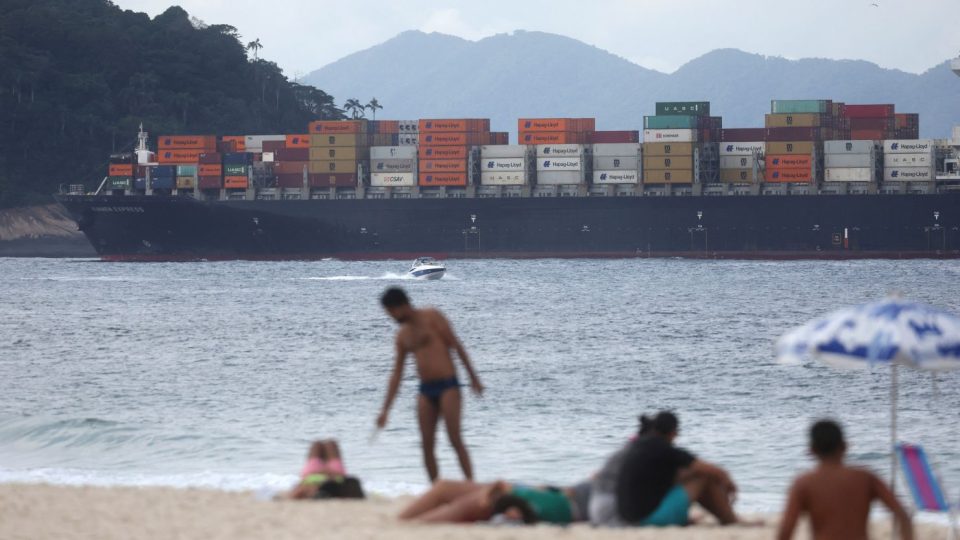The relationship between the United States and Brazil, the world’s tenth-largest economy, just entered a more fraught chapter. On Tuesday, President Trump’s administration directed the United States Trade Representative (USTR) to launch a formal investigation into what the US describes as Brazil’s “unfair” trade practices. The ripple effects go far beyond tariffs and regulatory red tape, striking at the heart of trade, tech, digital commerce, political values, and global market strategy.
This move by the US brings not only commerce into question but adds even more tension to an already complicated diplomatic relationship. The investigation was partly motivated by US objections to Brazil’s prosecution of its former president, Jair Bolsonaro, a Trump ally who faces legal proceedings over alleged efforts to overturn the country’s 2022 election results. Trump has not been shy in pressuring Brazilian authorities to drop their pursuit of Bolsonaro, branding it a “witch hunt” and making the justice issue a linchpin in the wider trade spat.
But, at its core, the probe focuses on Brazil’s conduct in digital trade and electronic payment services, where US companies have repeatedly cited regulatory hurdles and what they call discriminatory restrictions. According to the USTR, the inquiry will also examine whether Brazil’s preferential tariffs disadvantage American exporters, whether local authorities have interfered in anti-corruption efforts, and how robustly Brazil enforces intellectual property protection for American firms.
US officials are looking into several concrete complaints. For digital business, the claim is that Brazilian laws and enforcement unfairly target US-based social media and technology firms. Some American tech companies say they have faced fines, suspensions, and even threats of prosecution in Brazil connected to disputes over free speech, data handling, and platform regulation. A concrete example is the blocking of X (formerly Twitter) during a legal standoff with a Brazilian judge, which became a headline flashpoint for online censorship and tech sovereignty arguments.
On tariffs, the USTR contends that Brazil has consistently provided preferential access and lower duties to select global partners, particularly those in large trading blocs, while keeping higher tariffs on US goods. This has real consequences, they argue, for American exporters in sectors from agriculture to manufacturing. As recently as last year, Brazil was accused of rolling back its willingness to offer duty-free access to US ethanol, opting instead for substantially higher charges on American products.
The third central claim is that Brazil’s supposed lack of consistent anti-corruption enforcement and transparency in business practices harms not only the prospects for foreign investors and US companies but undermines broader economic norms. Issues with intellectual property enforcement round out the core areas of US concern.
The legal basis for the investigation is Section 301 of the Trade Act of 1974. This provision allows the US government to respond to foreign government acts deemed “unreasonable or discriminatory” that burden American commerce. Typically, a Section 301 probe includes public hearings, comment periods, and, if the findings justify it, responsive actions which can include tariffs or other trade remedies.
Ambassador Jamieson Greer, who represents the USTR, explained that the investigation is the result of longstanding US frustration with Brazilian trade barriers and new issues arising from digital and political disputes. The Trump administration has threatened, and could soon implement, a substantial tariff on Brazilian imports, potentially as high as 50 percent, if it deems Brazilian practices sufficiently unfair.
While the US maintains a trade surplus with Brazil, the stakes of this investigation are more complicated than a simple accounting balance. The probe’s scope shows how intertwined economics and politics have become in this relationship. Trade disputes are now vehicles for broader grievances over political values, legal standards, and the treatment of multinational corporations.
Brazil’s government is not backing down. President Lula has threatened to retaliate via tariffs of Brazil’s own, and to rally its partners in the BRICS group for a unified diplomatic response. He has even argued that, given the US surplus, it is Brazil that should be considering new trade barriers in self-defense.
The USTR has set a public hearing for September and is soliciting input from stakeholders on both sides of the dispute. Until then, companies, investors, and policymakers will be watching to see whether the threat of tariffs becomes reality, and whether this latest spat shifts the broader trajectory of US-Brazil economic ties.

